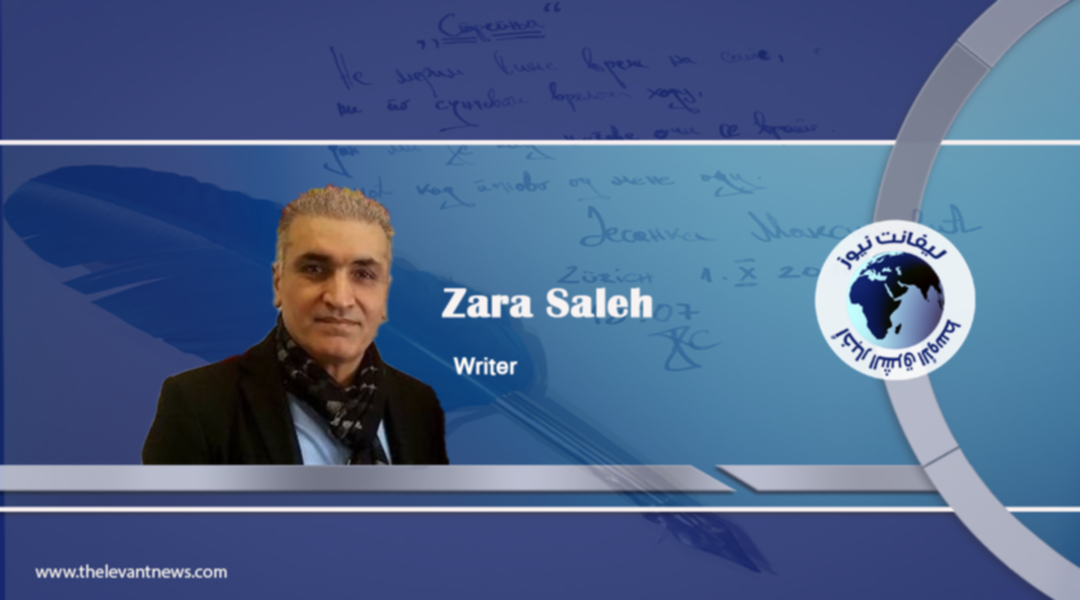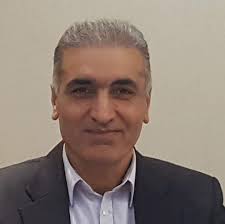-
The 'Kurdish phobia' in Astana 15 talks

The three Astana's self-appointed guarantors of the Syrian peace process- Turkey, Russia, and Iran- have held the 15th round of negotiations in Sochi after a long-term break since June 2020. This round, as usual, began with the participation of the UN and Red Cross representatives; Iraq, Lebanon, Kazakhistan, and Jordan as observer members. On the other hand, the US didn't attend the talks despite the Russian invitation as an indirect unsatisfaction Biden’s message to the summit.
A glance at the final statement of Astana's troika, the 'Kurdish phobia' again was in the centre of consideration and discussions with the full rejection of "illegal initiatives for self-governance" that lead by Kurds in northeast Syria. They also shared the idea and the ‘necessity’ to stand up against the "separatist plans" of the Syrian Democratic Forces (SDF), and to hinder the Kurdish ambition on the ground that has American support. Moreover, Astana's statement has clearly adopted the rhetoric that to exclude the Kurds from the political solution and peace process in Syria and considers Kurds as the " threat to the national security" for Syria and neighbouring countries.
Besides that, Astana guarantors expressed their "strong commitment" to the sovereignty, unity, and territorial integrity of Syria. In contrast to the mentioned above, Moscow, Ankara, and Tehran were already considered Astana talks as a tool of legitimatizing their military intervention in Syria. For example, Turkey is now occupying the northern part of Syria as a result of Astana's negotiations and the Putin-Erdogan deal in Idlib. Furthermore, Russian president Putin considers themself as the main "guarantor" of Syria's unity, he was behind Turkey's occupation of Kurdish areas of Afrin, Ras Al-Ain, and Til Abyad in northeast Syria that controlled by SDF.
At the same time, Russia and Iran are sharing Assad's areas of Syria with full military and political control, while they both "shed crocodile tears" when it comes to the unity and sovereignty of Syria. Russia is trying to confront the US strategy in Syria by blackmailing other parties involved in the Syrian conflict. Erdogan's chronic fear of "Kurdish state" or Kurdish autonomy in northeast Syria can be considered an essential aim for Turkey to intervene in the Syrian conflict. Simultaneously with that, Iran and the Syrian regime share the same common fear and interests with Erdogan towards Kurds in Syria.
Consequently, the main goals and objectives of the three Astana's guarantors on Syrian talks are that to reject any Kurdish presence or Kurdish rights in northeast Syria since the start of Astana's Meetings in September 2017. Added to that the Moscow with the other Astana counterparts - Iran and Turkey- are trying to institutionalize Astana's negotiations to be an alternative to the UN 2254 Resolution.
Zara Saleh

You May Also Like
Popular Posts
Caricature
BENEFIT AGM approves 10%...
- March 27, 2025
BENEFIT, the Kingdom’s innovator and leading company in Fintech and electronic financial transactions service, held its Annual General Meeting (AGM) at the company’s headquarters in the Seef District.
During the meeting, shareholders approved all items listed on the agenda, including the ratification of the minutes of the previous AGM held on 26 March 2024. The session reviewed and approved the Board’s Annual Report on the company’s activities and financial performance for the fiscal year ended 31 December 2024, and the shareholders expressed their satisfaction with the company’s operational and financial results during the reporting period.
The meeting also reviewed the Independent External Auditor’s Report on the company’s consolidated financial statements for the year ended 31 December 2024. Subsequently, the shareholders approved the audited financial statements for the fiscal year. Based on the Board’s recommendation, the shareholders approved the distribution of a cash dividend equivalent to 10% of the paid-up share capital.
Furthermore, the shareholders endorsed the allocation of a total amount of BD 172,500 as remuneration to the members of the Board for the year ended 31 December 2024, subject to prior clearance by related authorities.
The extension of the current composition of the Board was approved, which includes ten members and one CBB observer, for a further six-month term, expiring in September 2025, pending no objection from the CBB.
The meeting reviewed and approved the Corporate Governance Report for 2024, which affirmed the company’s full compliance with the corporate governance directives issued by the CBB and other applicable regulatory frameworks. The AGM absolved the Board Members of liability for any of their actions during the year ending on 31st December 2024, in accordance with the Commercial Companies Law.
In alignment with regulatory requirements, the session approved the reappointment of Ernst & Young (EY) as the company’s External Auditors for the fiscal year 2025, covering both the parent company and its subsidiaries—Sinnad and Bahrain FinTech Bay. The Board was authorised to determine the external auditors’ professional fees, subject to approval from the CBB, and the meeting concluded with a discussion of any additional issues as per Article (207) of the Commercial Companies Law.
Speaking on the company’s performance, Mr. Mohamed Al Bastaki, Chairman BENEFIT , stated: “In terms of the financial results for 2024, I am pleased to say that the year gone by has also been proved to be a success in delivering tangible results. Growth rate for 2024 was 19 per cent. Revenue for the year was BD 17 M (US$ 45.3 Million) and net profit was 2 Million ($ 5.3 Million).
Mr. Al Bastaki also announced that the Board had formally adopted a new three-year strategic roadmap to commence in 2025. The strategy encompasses a phased international expansion, optimisation of internal operations, enhanced revenue diversification, long-term sustainability initiatives, and the advancement of innovation and digital transformation initiatives across all service lines.
“I extend my sincere appreciation to the CBB for its continued support of BENEFIT and its pivotal role in fostering a stable and progressive regulatory environment for the Kingdom’s banking and financial sector—an environment that has significantly reinforced Bahrain’s standing as a leading financial hub in the region,” said Mr. Al Bastaki. “I would also like to thank our partner banks and valued customers for their trust, and our shareholders for their ongoing encouragement. The achievements of 2024 set a strong precedent, and I am confident they will serve as a foundation for yet another successful and impactful year ahead.”
Chief Executive of BENEFIT; Mr. Abdulwahed AlJanahi commented, “The year 2024 represented another pivotal chapter in BENEFIT ’s evolution. We achieved substantial progress in advancing our digital strategy across multiple sectors, while reinforcing our long-term commitment to the development of Bahrain’s financial services and payments landscape. Throughout the year, we remained firmly aligned with our objective of delivering measurable value to our shareholders, strategic partners, and customers. At the same time, we continued to play an active role in enabling Bahrain’s digital economy by introducing innovative solutions and service enhancements that directly address market needs and future opportunities.”
Mr. AlJanahi affirmed that BENEFIT has successfully developed a robust and well-integrated payment network that connects individuals and businesses across Bahrain, accelerating the adoption of emerging technologies in the banking and financial services sector and reinforcing Bahrain’s position as a growing fintech hub, and added, “Our achievements of the past year reflect a long-term vision to establish a resilient electronic payment infrastructure that supports the Kingdom’s digital economy. Key developments in 2024 included the implementation of central authentication for open banking via BENEFIT Pay”
Mr. AlJanahi concluded by thanking the Board for its strategic direction, the company’s staff for their continued dedication, and the Central Bank of Bahrain, member banks, and shareholders for their valuable partnership and confidence in the company’s long-term vision.
opinion
Report
ads
Newsletter
Subscribe to our mailing list to get the new updates!




















